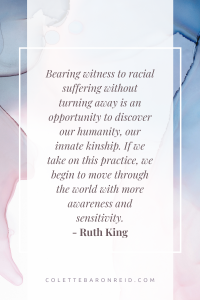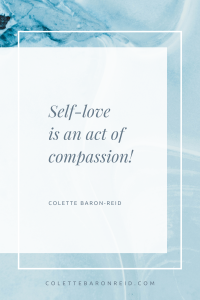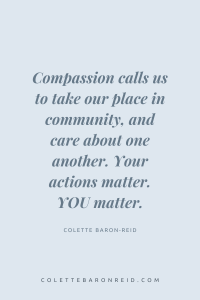The other day, I was on one of my rare excursions outside our home at the local grocery store. I was there with my basket of gluten-free bread, eggs, milk (okay, fine, I had a few gluten-free chocolate chip cookies in there, too!). Above the checkout area was a large, handwritten sign lettered in Sharpie that said:
“Please be kind to the staff. They are here to serve you during these trying times.”
At first, I thought, “How nice!” After all, I adore and appreciate any intentional reminder for kindness and love.
But then it occurred to me that something must have happened to require someone to take the time to write the sign and put it up. Actually, something must have happened more than once.
How many customers had snapped at the cashiers over the past 12 months? (I actually asked the cashier and she told me a few nasty stories!)
How many people had sworn at the stock clerks because there was no toilet paper left on the shelves?
How many complaints, angry voices, and frustrations had been taken out on others?
And suddenly, that sweet sign made me sad because of the hurt and suffering that was behind its creation.
The Problem with Fight or Flight
We’re all under a tremendous amount of stress right now. A common human response to stress in our modern times is to lash out at others. In prehistoric times, we would have used our anger or fear to fight off the woolly mammoths or outrun the saber-toothed tigers. But when our “enemy” is more existential than physical, our negative energy gets turned outward and unleashed on others in the form of road rage or keyboard warrior-ing on social media.
The problem is, when we do so, we do nothing to lessen the collective amount of suffering in the world — which is what compassion is all about. Yes, we may feel slightly better when we blow off some steam by laying on the horn and blasting the car that cut us off, or leaving a nasty Facebook comment. But we’re not doing anything to increase the kindness, joy, or love in the world, or to raise the vibration for the collective whole. We are not practicing compassion.
Practicing Radical Compassion
If we want to be compassionate beings — which, at our core, we are drawn to do — we must practice radical compassion. We must spread our love around with abandon, with the realization that it is a renewable resource that multiplies exponentially. When we offer love or kindness in the face of fear and negativity, we not only neutralize our own negative energy, we lift up others as well!
There’s a common misconception that charity involves only money. I disagree. Charity is the sharing of any positive resource we have, whether it be time, money, intention, or energy in any form.
When you’re driven by compassion, you naturally begin to seek ways to help others without seeking anything in return. You give without expectation, because you’re giving from abundance. That lack of expectation is absolutely radical in our “I’ll scratch your back, you scratch mine” culture. But we’re moving into a period of existence where we’re all called to more humanitarian action — that’s the pull of Aquarius on us all.
Here are some ways to practice radical compassion:
1. Do your own work. Best selling author of Mindful of Race, Ruth King says that racism is a heart disease — and it is curable!
 As a white woman, I do this work to become aware of my privilege, and to unpack my own biases and make real changes so I can be part of the solution. Ruth King writes, “Bearing witness to racial suffering without turning away is an opportunity to discover our humanity, our innate kinship. If we take on this practice, we begin to move through the world with more awareness and sensitivity.”
As a white woman, I do this work to become aware of my privilege, and to unpack my own biases and make real changes so I can be part of the solution. Ruth King writes, “Bearing witness to racial suffering without turning away is an opportunity to discover our humanity, our innate kinship. If we take on this practice, we begin to move through the world with more awareness and sensitivity.”
It’s Black History Month right now, so there are reminders of the work to be done all around us. But this isn’t part time work for the duration of a trend. It’s deep shifting work I must do year-round and for the rest of my life.
While I can’t “cure” the world on my own, I can — and must — do my part. When I move through this material world with greater sensitivity, I can reduce suffering. I can help to ease the burden my brothers and sisters have been forced to carry. We can all be part of the solution in our own way.
2. Contribute to compassionate charities. I support several amazing, heart-led charities that aim to mitigate the suffering of vulnerable groups, including LGBTQIA+, the BIPOC population, trans youth, animals, and more. If you’d like a list, I’ve compiled some of my favorites here:
Note: This list is by no means complete! I encourage you to do your research, and find charities that speak to the causes that are near and dear to your heart. There are so many wonderful people doing wonderful work. Find something that calls to you and put your energies there.
3. Roll up your sleeves. In non-COVID times, it’s so gratifying to look for hands-on ways to give back compassionately. Volunteering to foster abandoned dogs, weed a community garden in an under-resourced area, make phone calls on behalf of a cause you believe in… it’s all needed.
4. Practice kindness to others. Kindness is compassion in action. When we are intentionally kind, we are consciously raising the collective energy level for all. It doesn’t take much! Looking others in the eye, holding the door open, leaving a note for the FedEx delivery person that says, “You are awesome, thank you!” Again, these seem like small things, but no shift of energy is ever small. It all adds up.
 5. Practice kindness to yourself. Releasing yourself from your own resentments reduces your personal suffering — and that means you’re reducing the collective suffering as well. When your own energy levels raise, you have more to give others. It’s impossible to be horrible to yourself and then go out and practice radical kindness to everyone else. It just doesn’t work that way. Self-love is an act of compassion!
5. Practice kindness to yourself. Releasing yourself from your own resentments reduces your personal suffering — and that means you’re reducing the collective suffering as well. When your own energy levels raise, you have more to give others. It’s impossible to be horrible to yourself and then go out and practice radical kindness to everyone else. It just doesn’t work that way. Self-love is an act of compassion!
You’ve probably heard the story of the woman walking on the beach after a storm had washed up thousands of starfish. As the heat of the sun began to warm the sand, the starfish would surely dry out and die. So as she walked, she tossed each starfish she passed back into the waves.
“Why do you bother?” asked her little grandson, who was watching her actions. “There are thousands more than you could ever help. Throwing a few back doesn’t even matter,” he said.
“It matters to this one,” answered the woman, as she picked up another starfish and returned it to the sea.
 We can’t save everyone. We can’t fix everything. In such a divided world, we may wonder if our actions even make a difference.
We can’t save everyone. We can’t fix everything. In such a divided world, we may wonder if our actions even make a difference.
They do! Each time you spread kindness instead of suffering, each time you reach out in peace, you are healing the world. Compassion calls us to take our place in community, and care about one another. Your actions matter. YOU matter.

